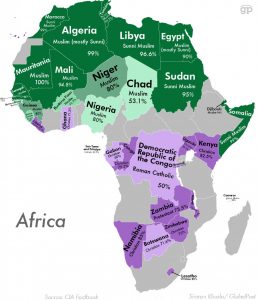It must be a sign that this knowledge realm is gathering such an impressive momentum attesting to its distinctiveness from the equally powerful and on-going research program of decolonizing knowledge generally but most specifically International Relations. As is clear in the above cover picture, Dr Chika Ezeanya-Esiobu whose creation this realm, unarguably, is will be speaking on “The Absent Foundation: Indigenous Knowledge in Africa’s Advancement Discourse” at Yale University in the United States in April 2020.

 Two things are interesting about this particular outing. One is the site of the conversation: Yale University, a permanent member of the global top ten universities. The second is the length of time devoted to the event: an hour and a half. Assuming she speaks for 30 or 45 minutes, there is still time for others to intervene and make it a many sided conversation rather than a monologue. What that means is a guarantee of a productive conversation on an issue so key to the project of remaking Africa.
Two things are interesting about this particular outing. One is the site of the conversation: Yale University, a permanent member of the global top ten universities. The second is the length of time devoted to the event: an hour and a half. Assuming she speaks for 30 or 45 minutes, there is still time for others to intervene and make it a many sided conversation rather than a monologue. What that means is a guarantee of a productive conversation on an issue so key to the project of remaking Africa.
It brings to mind one of Ken Booth’s observations. The University of Aberystwyth Professor of International Relations wondered what the discipline would look like if the global South, (he actually mentioned a South African site) colonised the global North. The point he sought to make clearer is how what goes on as IRs today – the concepts, theories and methodologies – are nothing but cultural mapping of the world in terms of the fears, desires and hopes of the Western world. It is great decolonization of knowledge is a serious business in Western research centres, universities and think tanks but the other side of it is that the Africans are yet to key in to that by teaching African cultural resources – languages, folk Sociology and political thought to mention a few. Except Literature, Linguistics and departments of (African) Religions, much of the humanities in Sub-Saharan Africa are still about what Hobbes or Aristotle said or forgot to say rather than what Zik, Nkrumah, Ahmed Ben Bella, Modibbo Keita, Machel, Senghor, Lumumba, Cabral and so on said and/or did and why.
But any talk about African liberation that does not start with undoing the ontological violence that current knowledge embody is a waste of time. There lies the strategic import in Ezeanya-Esiobu’s impending time in Yale, Come April 8th, 2020.




























